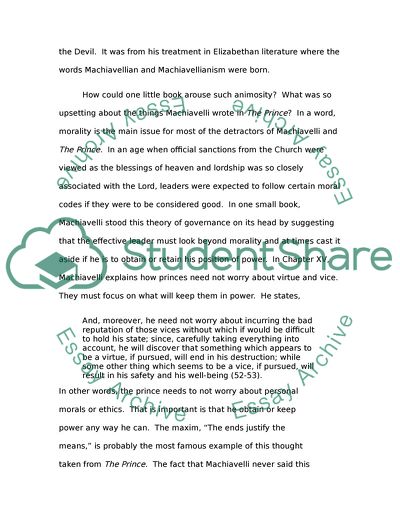Cite this document
(“Machiavelli's The Prince Essay Example | Topics and Well Written Essays - 1500 words”, n.d.)
Retrieved from https://studentshare.org/literature/1558604-machiavellis-the-prince
Retrieved from https://studentshare.org/literature/1558604-machiavellis-the-prince
(Machiavelli'S The Prince Essay Example | Topics and Well Written Essays - 1500 Words)
https://studentshare.org/literature/1558604-machiavellis-the-prince.
https://studentshare.org/literature/1558604-machiavellis-the-prince.
“Machiavelli'S The Prince Essay Example | Topics and Well Written Essays - 1500 Words”, n.d. https://studentshare.org/literature/1558604-machiavellis-the-prince.


